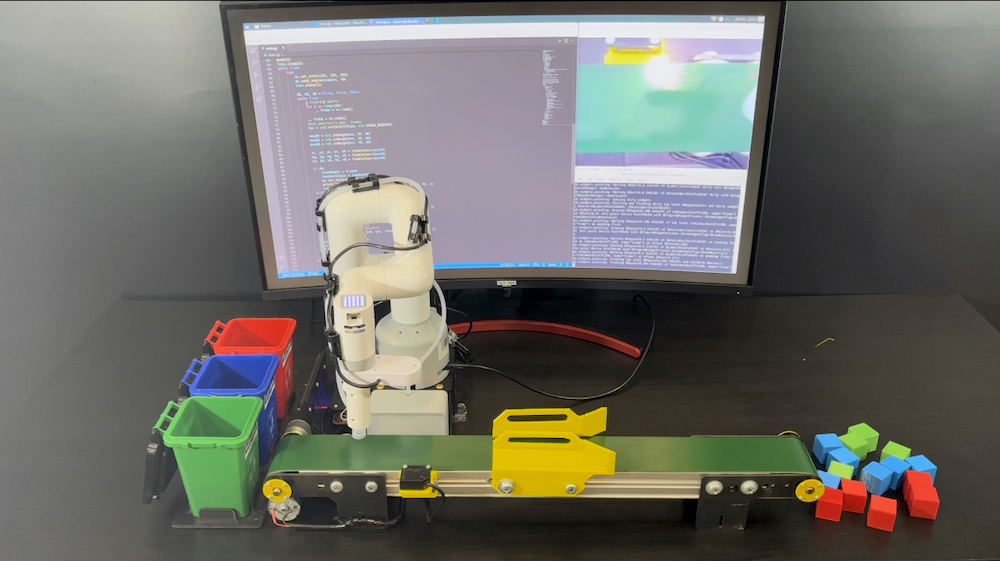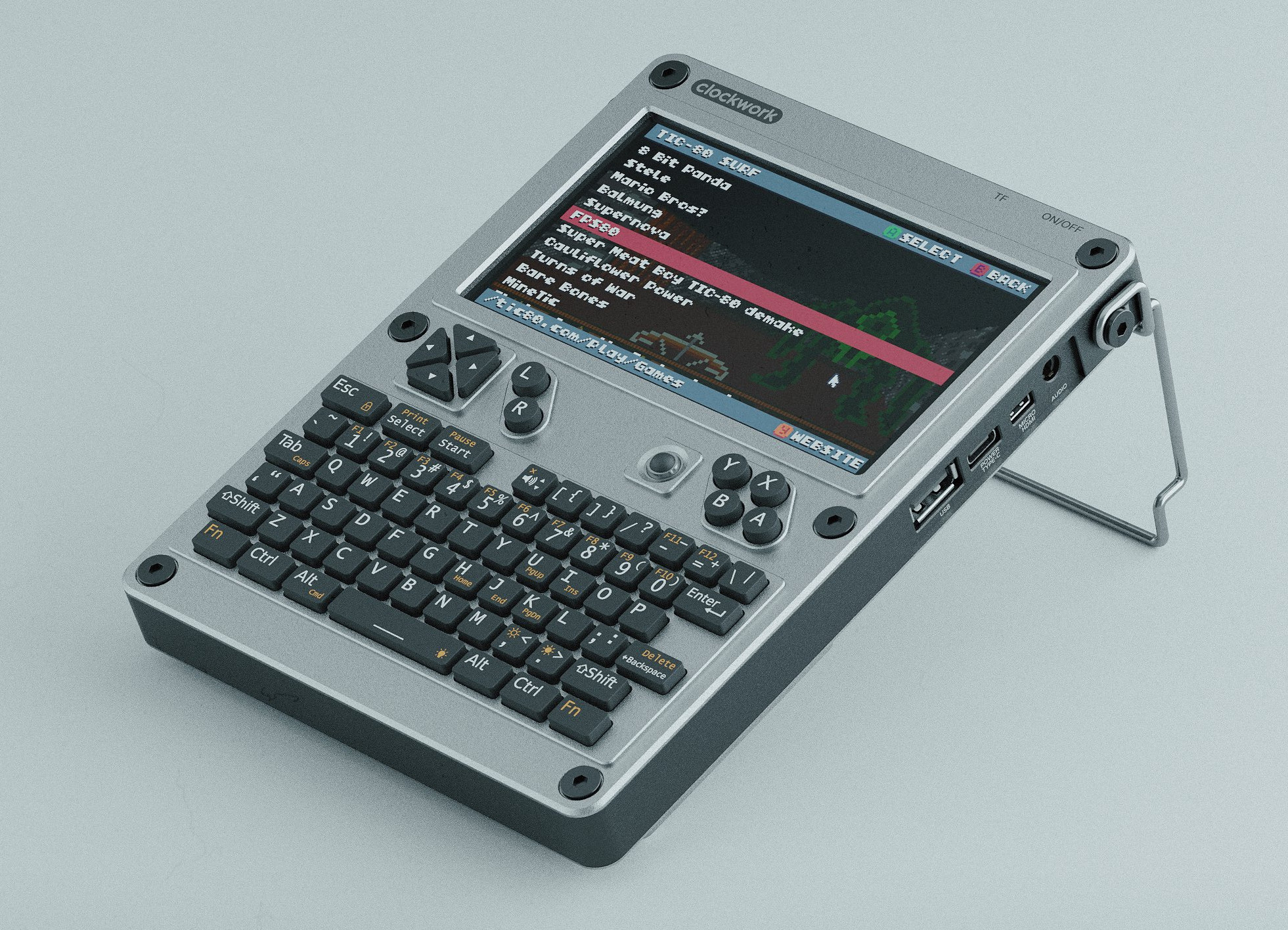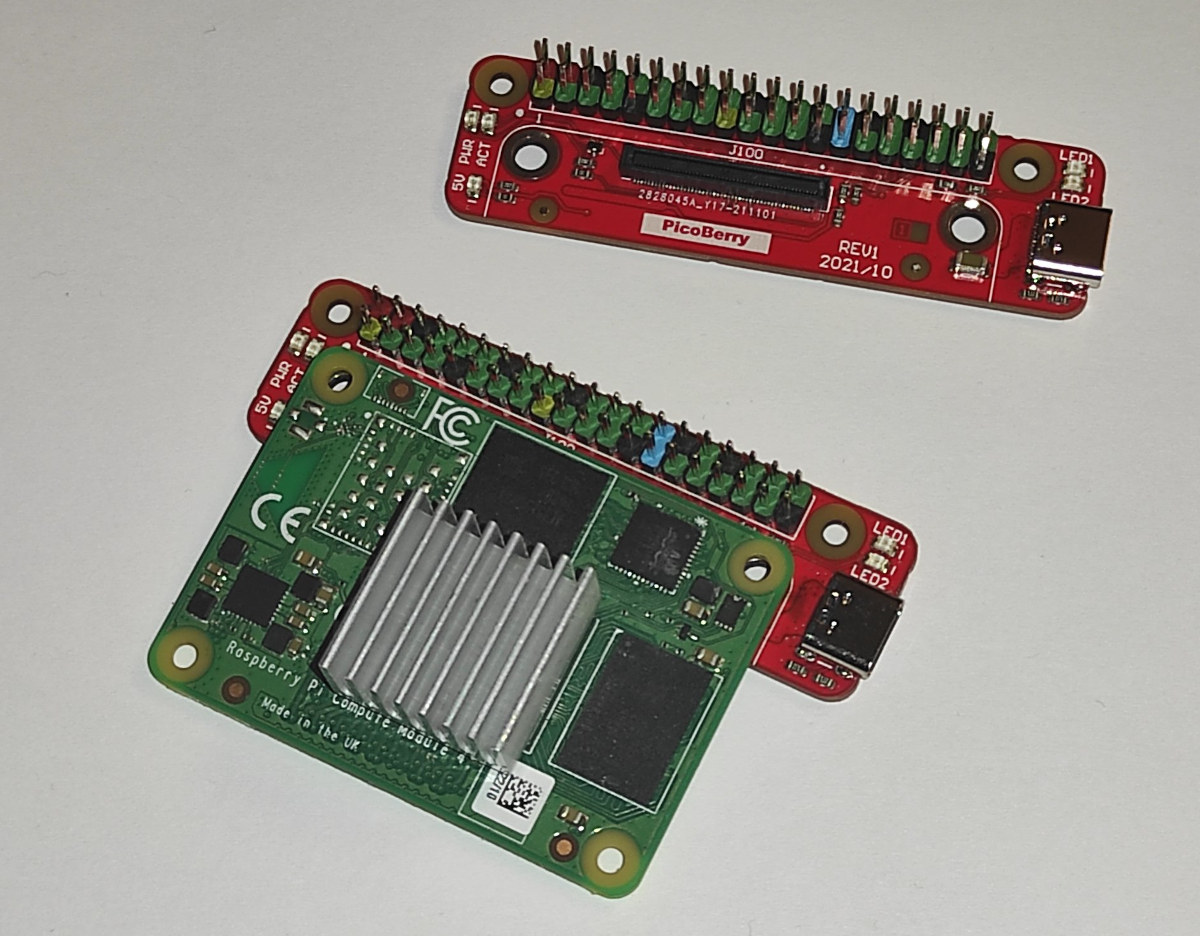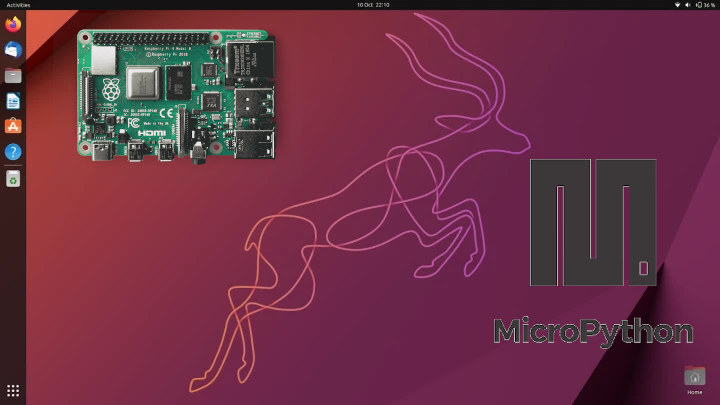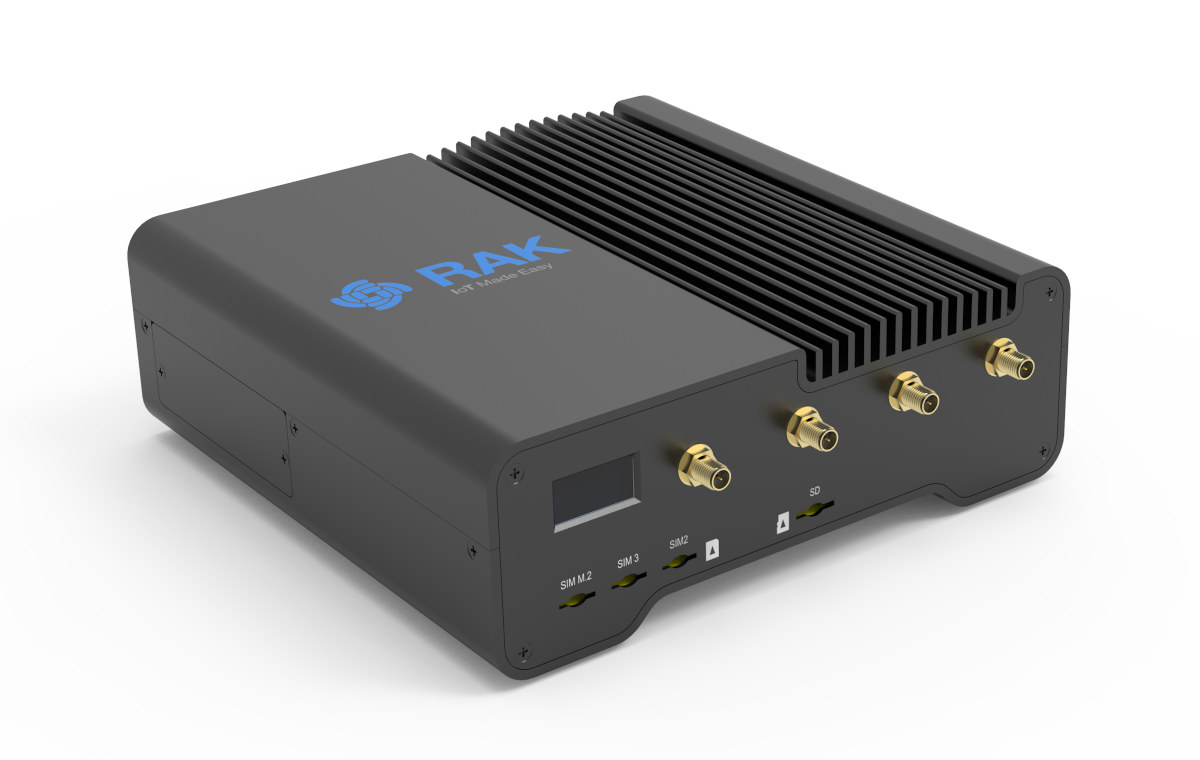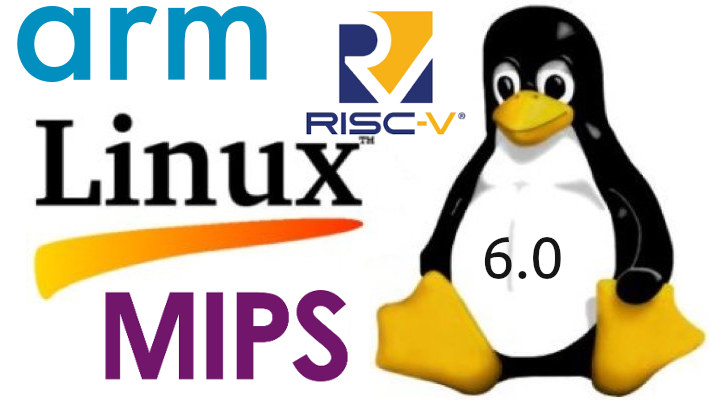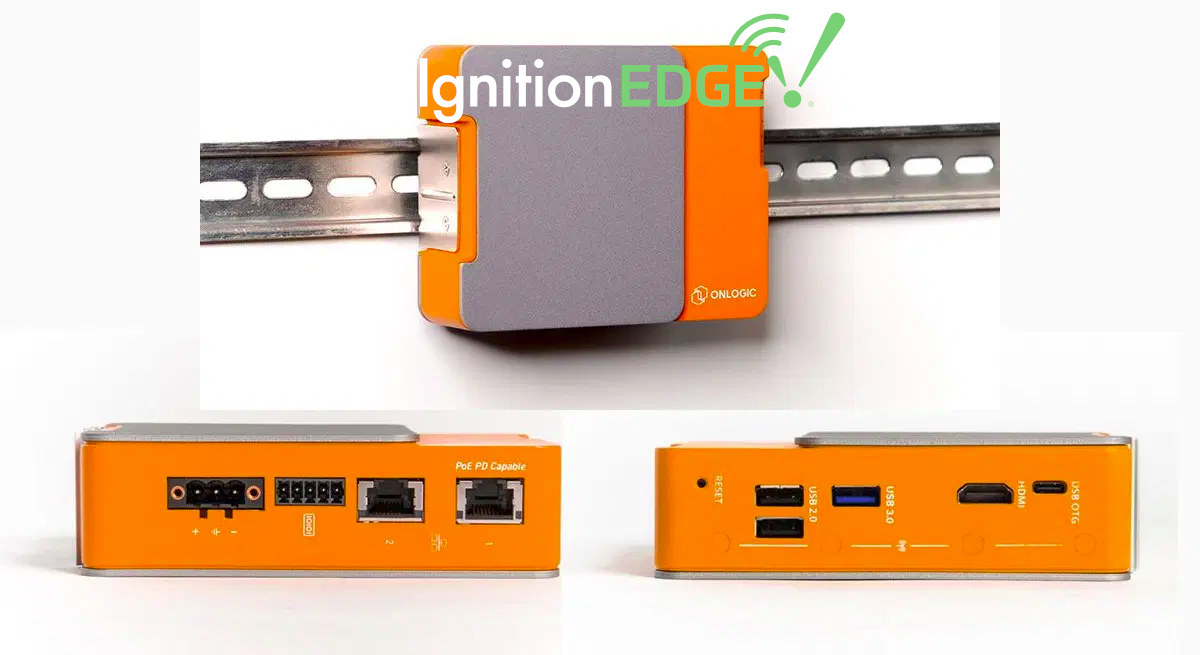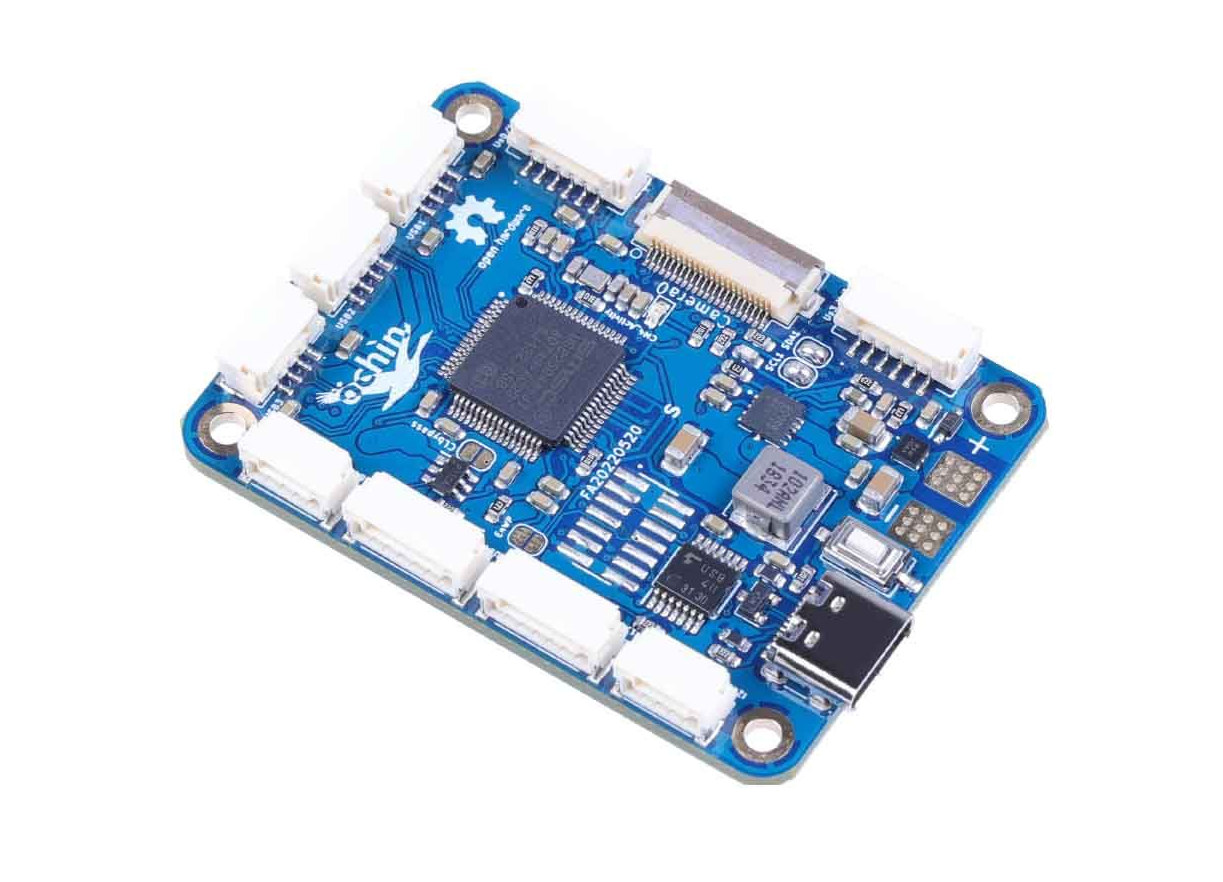myCobot 280 Pi is a versatile robotic arm with a 6 degree of freedom design. It was developed by Elephant Robotics using the Raspberry Pi 4 board as the main controller. The robot is compact and delivers stable operation making it ideal for confined spaces. It can also be programmed in a variety of languages, is easy to use, and offers a lot of features. It is suitable for those who are interested in learning how to program a robotic arm controller and for engineering projects. Unboxing myCobot 280 Pi The myCobot 280 Pi arm has a working range of 280 mm, weighs 850 grams, and can handle a payload of up to 250 grams. It is powered by 6 servo motors, one for each degree of freedom, and comes with a 5×5 matrix LED display, and supports LEGO parts as well. Controlled by a Raspberry Pi 4 single board […]
uConsole is a modular Arm or RISC-V handheld computer with optional 4G connectivity
Clockwork’s uConsole is a modular handheld computer with a 5-inch display, a built-in keyboard, and based on a carrier board supporting various Arm or RISC-V modules compatible with the Raspberry Pi CM3 or CM4 form factors. The device is offered with a system-on-module with up to 4GB RAM, a WiFi 5 and Bluetooth 5.0 wireless module, features micro HDMI video output, USB ports, and an audio jack, plus expansion connectors for more advanced users, and takes two 18650 batteries for power. The company also offers a 4G LTE module for cellular connectivity. The mainboard, called ClockworkPi v3.14 revision 5, offers the following: System-on-module socket – 200-pin DDR2 SODIMM socket compatible with Raspberry Pi CM3 and, through an adapter, Raspberry Pi CM4 and compatible modules Storage – MicroSD card socket Video Interfaces 40-pin MIPI DSI connector micro HDMI interface for external display Audio – 3.5mm audio jack with headphone and microphone […]
Miniature Raspberry Pi CM4 carrier board only exposes USB-C port and 40-pin GPIO header
Mirek Folejewski’s (aka Mirko Electronics) PicoBerry is an open-source hardware, miniature Raspberry Pi CM4 carrier board with just a USB Type-C port for power, a 40-pin Raspberry Pi GPIO header, and barely anything else. At just 70x20mm, the 2-layer board only adds a few LEDs, namely the ACT/PWR LEDS and two user LEDs, and supports any Raspberry Pi CM4 module with eMMC flash, but not the Raspberry Pi CM4 Lite since the board does not include a microSD card slot. PicoBerry specifications: Supported system-on-modules – Raspberry Pi CM4 with eMMC flash, and possibly compatible SoMs such as Radxa CM5 or Pine64 SoQuartz64 USB – USB Type-C for power Expansion – 40-pin GPIO header with the same layout as on Raspberry Pi 4 or other Pi boards with a 40-pin header Misc – ACT/PWR LEDs, 2x user LEDs (green.red) Power Supply – 5V DC/3A via USB-C port, Dimensions – 70x20mm (2-layer […]
Ubuntu 22.10 released with MicroPython and improved Raspberry Pi display support
Canonical has just released Ubuntu 22.10 “Kinetic Kudu” with improved desktop usability and performance, upgrade enterprise management tooling, and tools to optimize developer workflows, but highlights most relevant to CNX Software readers are the inclusion of MicroPython and improved embedded display support for Raspberry Pi. It feels like Ubuntu 22.04 LTS was just recently outed, but six months have already passed and Ubuntu 22.10 interim release is out. Some of the generic changes include: Toolchain updates to Ruby, Go, GCC and Rust OpenSSH server (sshd) is only activated when an incoming connection request is received to lower the memory footprint on resource-constrained devices A new debuginfod service to help developers and admins debug programs shipped with Ubuntu Landscape 22.10 beta to run and manage Ubuntu server to desktop on most architectures including Arm and RISC-V GNOME 43 with GTK4 for improved performance and consistency. Pipewire audio platform with better Bluetooth […]
WisGate Connect Raspberry Pi CM4 gateway supports 2.5GbE, WiFi 6, BLE, LoRaWAN, 4G, 5G, and more
RAKwireless has just introduced the WisGate Connect gateway based on Raspberry Pi CM4 system-on-module with support for Gigabit and 2.5Gbps Ethernet plus various optional wireless connectivity option that can be added through Mini PCIe or M.2 sockets as well as expansion through WisBlock IO connectors. Wireless options include LoRaWAN, 4G LTE, 5G, WiFi 6, Zigbee, WiFi HaLoW, and more, while WisBlock modules enable features such as methane sensor, motor current sensor, temperature sensor, pressure control, and valve control among many others. WisGate Connect (RAK7391) specifications: SoM – Raspberry Pi CM4 with Broadcom BCM2711 quad-core Cortex-A72 processor @ 1.5GHz, 1 to 8Gb DDR4, optional 8 to 32GB eMMC flash, optional WiFi 5 and Bluetooth 5.0 LE Storage – MicroSD card socket for CM4 Lite modules only Video Output – HDMI 2.0 up to 4Kp60, 22-pin MIPI DSI connector Camera I/F – 2x 22-pin MIPI CSI connectors Networking Wired – Gigabit Ethernet […]
Linux 6.0 release – Main changes, Arm, RISC-V, and MIPS architectures
Linux 6.0 has just been released by Linus Torvalds: So, as is hopefully clear to everybody, the major version number change is more about me running out of fingers and toes than it is about any big fundamental changes. But of course there’s a lot of various changes in 6.0 – we’ve got over 15k non-merge commits in there in total, after all, and as such 6.0 is one of the bigger releases at least in numbers of commits in a while. The shortlog of changes below is only the last week since 6.0-rc7. A little bit of everything, although the diffstat is dominated by drm (mostly amd new chip support) and networking drivers. And this obviously means that tomorrow I’ll open the merge window for 6.1. Which – unlike 6.0 – has a number of fairly core new things lined up. But for now, please do give this most […]
OnLogic IGN800 Industrial Raspberry Pi Edge Gateway runs Ignition Edge software
OnLogic IGN800 is an industrial edge gateway based on the Raspberry Pi CM4 module pre-loaded with the Ignition Edge HMI, SCADA (Supervisory Control And Data Acquisition), MES, and IIoT software platform from Inductive Automation. The hardware is not exactly new, as the Onlogic IGN800 is simply the OnLogic Factor 201 industrial PC introduced earlier this year, but that ships with Ignition Edge in order to provide a cost-effective solution for automation projects. OnLogic IGN800 specifications: SoM – Raspberry Pi CM4 with Broadcom BCM2711 quad-core Arm Cortex-A72 processor @ up to 1.5 GHz, up to 8GB LPDDR4 RAM, up to 32GB eMMC flash Additional storage – Optional M.2 SATA SSD (See Expansion section) Video Output – HDMI port up to 4Kp60 Networking 2x Gigabit Ethernet LAN (Optional PoE PD Input) via Realtek RTL8153 controller Optional WiFi/Bluetooth module on Raspberry Pi CM4 module + 3x antenna holes Optional 4G LTE wireless module […]
Ochin Raspberry Pi CM4 carrier board is made for drones and robots
There are plenty of carrier boards for Raspberry Pi CM4, but the Ochin looks a bit different, as it is specifically designed for drones and robots, and the compact carrier board exposes most interfaces through low-profile GHS connectors instead of standard ports or headers. About the size of the Raspberry Pi CM4 itself, the board also comes with a USB Type-C port to flash the eMMC flash, two MIPI CSI connectors, and four USB 2.0 GHS connectors to add cameras to your robotics projects, and supports LiPo batteries. Ochin specifications: Supported modules – Raspberry Pi CM4 with Broadcom BCM2711 quad-core Cortex-A72 processor, up to 8GB RAM, up to 32GB eMMC flash (the CM4 Lite is not supported since there’s no microSD card on the board), 4Kp60 H.265 decode, 1080p30 H.264 encode, and optional WiFI 5 and Bluetooth 5.0 USB – 1x USB 2.0 Type-C port Camera I/F – 1x 4-lane […]


